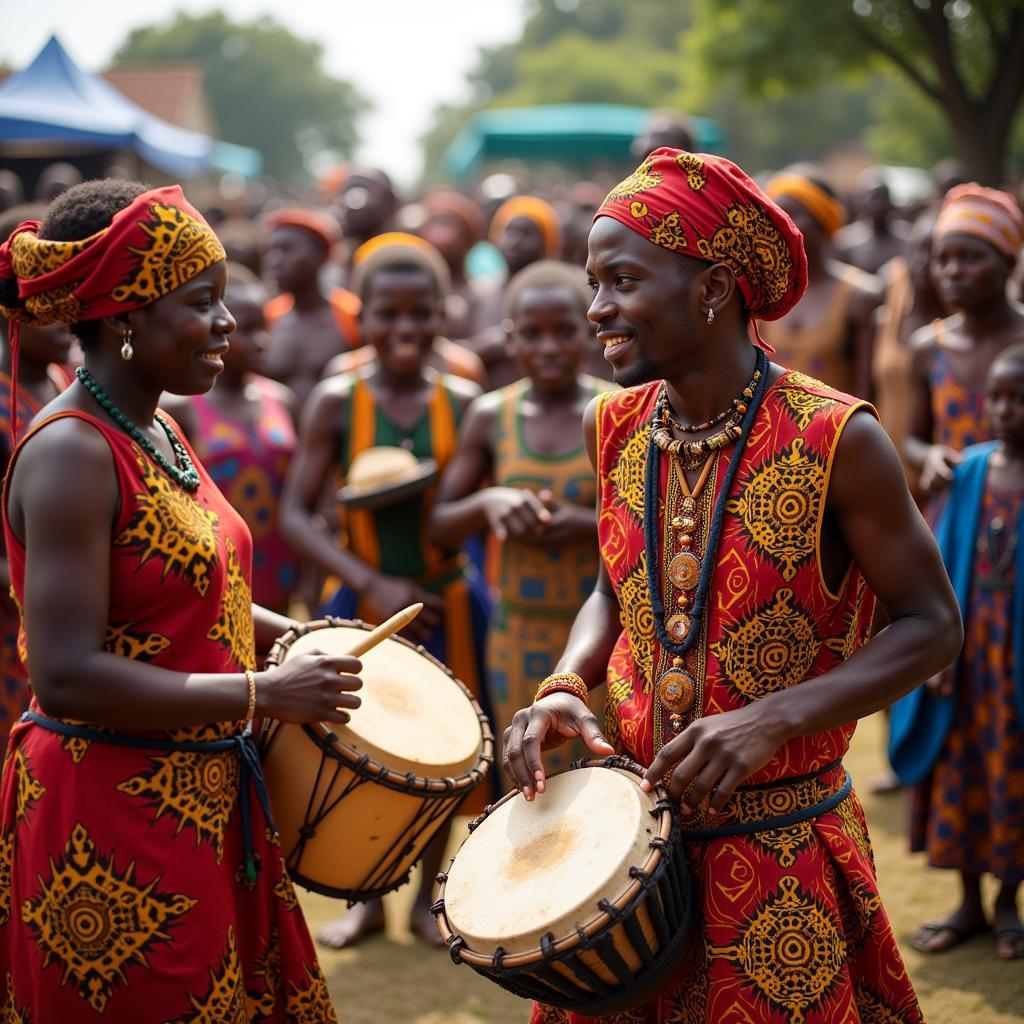The “Ase Yoruba Symbol” represents a fascinating concept deeply embedded within the Yoruba culture of West Africa. While not strictly tied to a single visual symbol, “ase” embodies a spiritual force, energy, or power that flows through all things, influencing the universe’s balance and the success of human endeavors. Understanding “ase” requires delving into its meaning, significance, and how it shapes Yoruba beliefs and practices.
The Essence of Ase: More Than Just a Force
In the Yoruba worldview, “ase” is not simply energy; it’s the vital force that animates existence. It’s the power behind creation, the energy driving change, and the essence that sustains life itself. Consider it the spiritual electricity that empowers the universe and connects everything. This potent force is believed to be present in:
- Olodumare (God): The ultimate source of “ase,” Olodumare bestows this power upon everything in creation.
- Orishas (Deities): These intermediaries between the divine and humanity wield “ase” to govern specific aspects of nature and human life.
- Humans: Individuals possess “ase,” though its strength varies. Actions, words, and intentions can either enhance or diminish this personal power.
- Nature: From the wind to the mountains, every element in nature possesses and expresses “ase.”
- Objects: Certain objects, especially those consecrated for spiritual purposes, can hold and channel “ase.”
The Role of Ase in Yoruba Life:
The concept of “ase” permeates every aspect of Yoruba culture, influencing:
- Religion and Spirituality: Rituals, offerings, and prayers are all means of connecting with and invoking “ase” for blessings, protection, and guidance.
- Leadership and Authority: Traditional rulers and spiritual leaders are seen as having strong “ase,” enabling them to guide and govern effectively.
- Healing and Medicine: Traditional healers use herbs, rituals, and invocations to manipulate “ase” for healing and restoring balance.
- Art and Music: Yoruba art forms, particularly drumming and dance, are vibrant expressions of “ase,” believed to channel and amplify this energy.
- Daily Life: From greetings to blessings, the word “ase” is frequently spoken to affirm wishes, invoke positive energy, and acknowledge the presence of this force.
 Yoruba Ceremony and Ase
Yoruba Ceremony and Ase
Ase and the Yoruba Language:
The word “ashe” itself holds significant weight in the Yoruba language. When spoken, it’s not merely an affirmation; it’s an invocation.
- Greetings and Blessings: Saying “ase” after someone’s prayer or wish is a way of adding your own energy to it, amplifying its potential for manifestation.
- Acknowledgement and Agreement: “Ase” can signify understanding and agreement, similar to saying “amen” or “so be it.”
- Expressions of Power: In certain contexts, “ase” can be used to assert authority or command attention.
Misconceptions and Clarifications:
While not a symbol in the visual sense like a logo or icon, the concept of “ase” itself is symbolic of a deeper spiritual understanding within Yoruba culture. It’s important to differentiate this from simplified notions of “good luck” or “charms.”
- Ase is Not Magic: It’s a force that operates within a complex spiritual framework, not a supernatural shortcut.
- Ase is Earned and Cultivated: While everyone possesses “ase,” its potency depends on one’s character, actions, and connection to the divine.
Exploring Further:
The concept of “ase” offers a glimpse into the rich philosophical and spiritual depths of the Yoruba worldview. To delve deeper into related concepts:
- Aboru Aboye Ase: This Yoruba phrase is a salutation and blessing often used in spiritual contexts.
- Ashe or Ase: Explore the variations in spelling and pronunciation of this powerful word and its significance.
Understanding “ase” requires moving beyond superficial definitions. It’s about appreciating the interconnectedness of all things, the power of intention, and the importance of aligning oneself with the divine flow of the universe, as understood within the Yoruba context.

